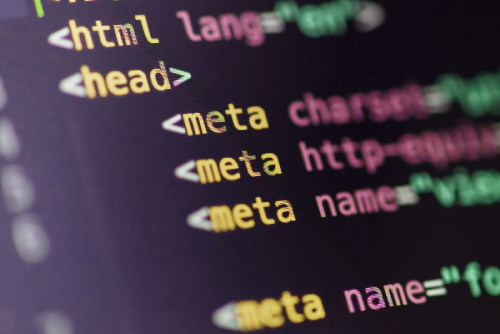These days, you won’t go far without proper protection online, which is true both for home users and businesses. Cyber threats cost the international economy billions of dollars, and the numbers are about to hit the roof. That’s precisely why cyber-security experts are in high demand. The market is full of comprehensive antivirus programs and security suites that easily handle most incoming attacks.

Getting Things into Perspective
No antivirus software can safeguard you from every single online threat. Cybercriminals develop new, more advanced types of viruses and Trojans every single day. And to battle them, you’ll need to be fluent in at least one programming language.
But which ones should you start with? Let’s get to that right now!
HTML

If you want to become a pro in the security sector, HTML should be #1 on your list. The reason: almost every single site (91%, to be exact) on the WWW uses it one way or another. True, it’s not very complicated and is often called a basic language, but that’s actually a good thing. We recommend a striving young programmer to start with HTML, as it will teach you the 101 of programming, especially for the security industry.
And since this is the golden standard of markup languages, cybercriminals exploit its weaknesses to get access to websites. Again: a vast majority of targeted attacks use HTML to penetrate the first line of defense. Programmers that master HTML land front-end developer jobs in big tech companies. Their task is to create apps and webpages. Plus, they battle content spoofing, cross-site scripting, and more.
JavaScript
Next, we’ve got the famous JavaScript. It’s one of the strongest, most spread-out, and extensive languages today. In fact, according to statistics, JavaScript is the most popular programming language on the planet. It basically powers the Internet; therefore, learning it will help you understand how most websites work. And once you master it to the fullest, your skills will be sought-after not only in cyber-security but also in the web development segment.
On top of that, Java-based AngularJS and Node. Js are among the frequently-used and highly-rated libraries and tools. So, overall, JavaScript is one of the most beneficial programming languages that you can master. Along with HTML, it’s a safe bet if you’re planning on becoming a cyber-security expert and earning six figures a year.
C
Are you into reverse engineering and “patching up” weaknesses in the system? Then pay extra attention to C. This language has been around for 50 years and is still popular because it’s (relatively) easy to learn your way around. Hackers know this language like the back of their palms as well, and they use it to find and exploit vulnerabilities.
In turn, the good guys – cyber-security analysts – work on minimizing the risks by locking those security doors and fixing the system. A code analyst can be of great help in this. In 1978, Lint was introduced, and it’s quite effective at finding bugs, flaws, and technical or programming errors.
C++
As the name suggests, this is the more advanced version of the original C. It was developed in 1985 and is, overall, faster, more secure, and more user-friendly than its predecessor. On the downside – only about 0.1% of websites use C++. But that shouldn’t stop you from dedicating your time to mastering it. Since C and C++ are, in many ways, the same, understanding both programming languages will give you an advantage over other applicants.
Many C++ programmers work on creating advanced applications/software for desktop computers and mobile devices. The more advanced pros, in turn, deal with bugs, exploits, and exposure. For low-level programming, C++ is unmatched, and any security expert should be fluent in it. A quick note: C is at the heart of many modern-day operating systems thanks to flexibility, efficiency, and versatility.
Python

And what about this next programming language, you might ask? Python is widely used by hackers since it has a big, well-developed third-party library of ready-steady scripts. That allows them to launch attacks even when they can’t create their own scripts/codes. So, security programmers that have mastered Python will have a better chance of stopping these types of attacks.
These specialists are busy developing unique scripts and tools for protecting websites from Python-based scripts. Evaluation, analysis, and in-house tests are also their responsibility. Unless you know the root of the problem, so to speak, it will be much harder to counteract hacker attacks. For high-level programming, Python is a God-sent, as it helps to detect and fix flaws in the security system.
Summing Up
Cyber threats aren’t going away any time soon – the same can be said about security specialists. Therefore, if you take some time and master a programming language or two, you’ll be investing in your future. Today, we talked about the most popular and useful languages for security experts. You don’t have to master them all, of course. However, programmers that know HTML and JavaScript by heart will have a higher chance of finding a well-paid gig or a full job.
Author: Nathan Collier
I am a tech writer and editor at bestantiviruspro.org, ensuring that every piece of content is relevant and precise. I do believe that our online security and privacy are a necessity nowadays. That’s why I do software reviews and share my knowledge of cybersecurity. Be aware, any click of yours may be crucial for your safety.